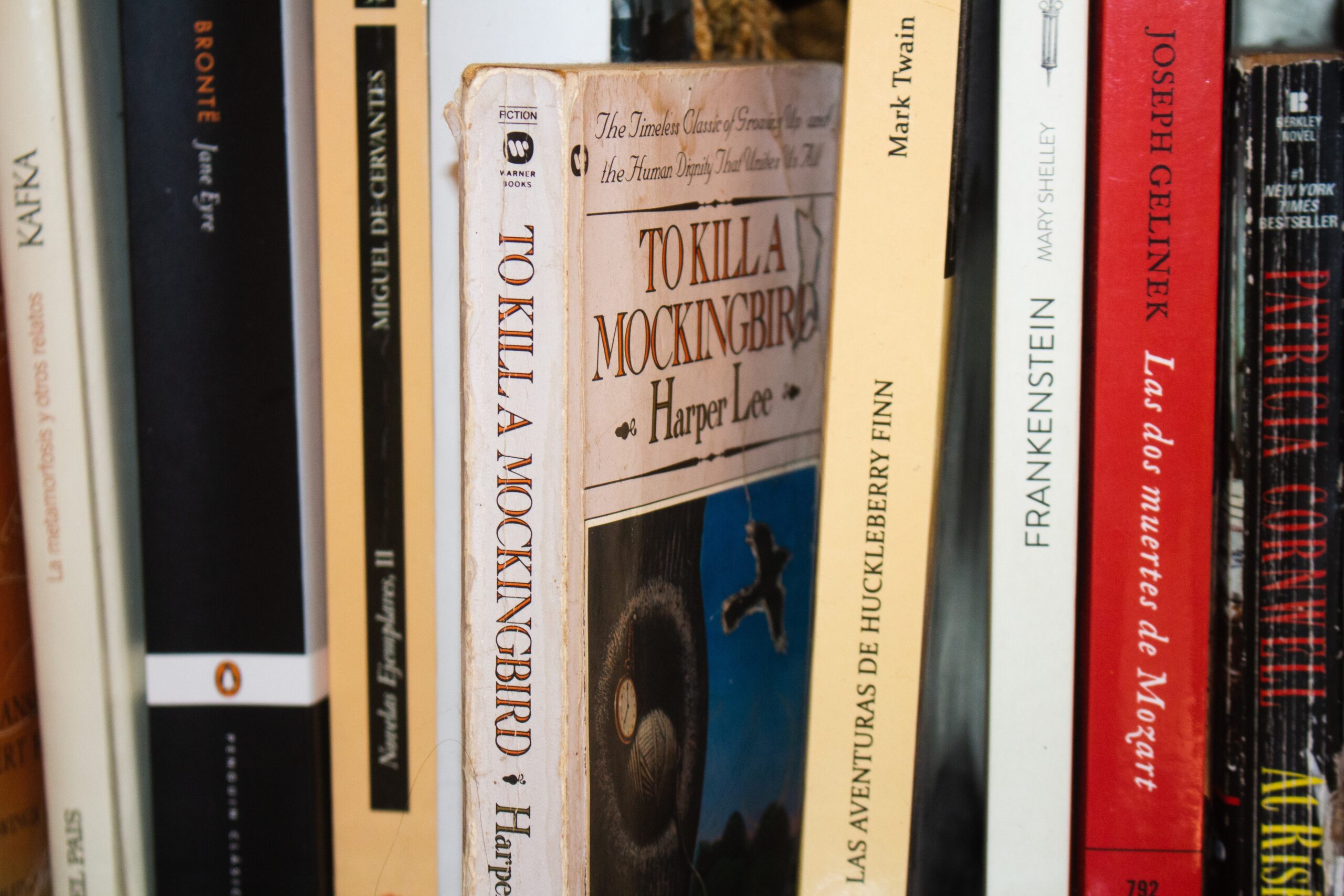The Show Can Go On: Second Circuit Analyzes Copyright Grants Involving Play Adaptations of “To Kill a Mockingbird”
by Gregory Feit
Fans of Harper Lee’s classic novel To Kill a Mockingbird, admirers of walk-and-talk screenwriter Aaron Sorkin, Broadway enthusiasts, and devotees of esoteric copyright law recently hit the Venn diagram jackpot. That’s thanks to the late July 2025 decision by the United States Court of Appeals for the Second Circuit, in Atticus Limited Liability Co. v. Dramatic Publishing Co., which addressed rights to create and perform stage adaptations of the novel, including Sorkin’s version.
Factual & Procedural Background
This case has a complex background, including prior and ongoing proceedings in arbitration and the Seventh Circuit. For present purposes, however, the following simplified account should suffice.
In 1969, Lee granted The Dramatic Publishing Company (“Dramatic”) the right to develop a stage adaption of the novel, which she agreed would be “the only one the amateur acting rights of which [Lee] will permit to be leased and/or licensed.” Dramatic proceeded to write an adaptation and to license amateur productions of it.
Many years later, by notice to Dramatic in 2011 and effective as of 2016, Lee terminated the grant and authorized the development of another stage adaptation of the book, which Sorkin was later engaged to write. Atticus Limited Liability Company (“Atticus”), as successor in interest to Rudinplay, Inc. (“Rudinplay”; think producer Scott Rudin), ultimately acquired the rights to produce and present performances of Sorkin’s play, which debuted on Broadway in 2018.
Following subsequent disputes between the parties over their respective rights, Atticus sought a declaration in New York federal district court that amateur performances of Sorkin’s adaptation did not infringe any copyright interest that Dramatic held under the 1969 grant. Dramatic took the contrary position that it retained an exclusive license to stage amateur adaptations of the novel, such that Dramatic could block amateur performances of any other plays based on the book. The district court rejected that position and entered a declaratory judgment in Atticus’s favor.
The Copyright Act
Under the federal Copyright Act, an author has the exclusive rights, inter alia, to reproduce her copyrighted work, to perform and display a literary work in public, and to authorize others to prepare “derivative works” based on the underlying copyrighted work. Derivative works, such as the dramatization of a novel, are independently copyrightable, but only as to the new material created by the preparer of that derivative work.
The Copyright Act allows an author to reclaim rights granted to others by terminating the prior grant of a transfer or license, thereby giving authors (or their estates) a second chance to exploit their works and helping to relieve them of the consequences of ill-judged or non-lucrative grants, such as ones made before understanding the true value of their works. Upon the effective date of a grant termination, all of the author’s rights covered by the terminated grant revert to the author.
That reversion right, however, is qualified. Under the so-called “derivative works exception,” a derivative work created pursuant to a valid grant before its termination “may continue to be utilized under the terms of the grant after its termination.” 17 U.S.C. § 304(c)(6)(A). Thus, an existing derivative work can continue to be exploited and performed by the grantee even after termination of the prior grant.
The Copyright Act further provides that, following the effective date of a grant termination, the author may enter into a new agreement granting the same rights encompassed by the terminated grant, provided that the subsequent grant (or agreement to make a subsequent grant) is made after the effective date of the termination, see § 304(c)(6)(D), subject to the caveat that a further grant agreement can be made between the author and the original grantee (or successor) after a notice of termination has been served on the grantee and up to the termination effective date.
Arguments & Decision on Appeal
Following its loss in district court, Dramatic argued on appeal that its granted right to stage amateur productions was exclusive and that, pursuant to the derivative works exception, this exclusivity right was preserved even after Lee terminated the grant. In other words, according to Dramatic, exclusivity in the grant was part of the “terms of the grant” regarding how its derivative work could be “utilized.”
The Second Circuit disagreed, concluding that Dramatic’s stance improperly conflates Dramatic’s rights in its own adaptation with Lee’s rights in the copyrighted work itself, which include her right to preclude performances of new derivative works. Lee’s termination of the 1969 grant caused all of her rights under the Copyright Act that had been covered by the terminated grant to revert to her, including the right to authorize others to create new adaptations for amateur productions and to prevent any further stage adaptations of the novel for such productions.
The court reasoned that Dramatic’s contrary position would lead to anomalous and absurd consequences. If, hypothetically, Lee had agreed in the 1969 grant that Dramatic’s play would be the only derivative work that could be created based on the novel, then, under Dramatic’s misguided view, Dramatic would have the right to prevent the creation of any other future derivative works. That would be inconsistent with how termination rights work under the Copyright Act, as it would effectively bar the reversion of all of Lee’s rights, including the right to authorize new derivative works. It would also mean that no one, including either Dramatic or Lee, would be permitted to prepare or authorize the preparation of any new derivative work based on the novel following the termination of Dramatic’s grant.
Dramatic also contended that Atticus lacked amateur production rights in the Sorkin play because Lee’s grant of those rights was invalid under the timing requirements of the Copyright Act. Specifically, Dramatic claimed that because Lee had in 2015 granted Atticus’s predecessor-in-interest an authorization to procure a playwright (ultimately Sorkin) and to create a dramatic adaptation of the book, that grant, because it preceded the 2016 effective date of the termination of Lee’s grant of those rights to Dramatic, was barred under § 304(c)(6)(D). Dramatic accordingly maintained that Atticus, which holds Rudinplay’s rights under the 2015 grant, could not itself assert production rights in the Sorkin adaptation.
The Second Circuit deemed this challenge to Atticus’s rights a “red herring.” It held that the case turned not on the rights that Rudinplay had acquired from Lee, but instead on the scope of Dramatic’s rights under the terminated 1969 grant. Since Dramatic no longer held exclusive rights to stage amateur productions of adaptations of the novel, Dramatic could not preclude Atticus from licensing the Sorkin play for competing amateur productions, regardless of any alleged invalidity of the 2015 grant to Rudinplay.
On these (and other) grounds, the Second Circuit affirmed the district’s court judgment granting declaratory relief to Atticus, allowing it to continue staging amateur performances of the Sorkin adaptation without infringing any of Dramatic’s interests.
* * *
The Second Circuit’s decision provides clear confirmation that (i) following the effective date of termination of an author’s statutory grant, all exclusive rights in the original work revert to the author, and (ii) the derivative works exception allows only the continued exploitation of an existing derivative work, not any right to block new adaptations. Producers, publishers, and authors and artists (and their estates), as well as attorneys drafting agreements involving copyright grants and terminations, should remain cognizant of the distinction between rights to continue exploiting an existing adaptation and rights to bar others from developing and performing other new versions.
 This article is intended as a general discussion of these issues only and is not to be considered legal advice or relied upon. For more information, please contact RPJ Attorney Gregory Feit who counsels clients on employment law, litigation, arbitration, negotiation, and trial advocacy. Mr. Feit is admitted to practice in New York.
This article is intended as a general discussion of these issues only and is not to be considered legal advice or relied upon. For more information, please contact RPJ Attorney Gregory Feit who counsels clients on employment law, litigation, arbitration, negotiation, and trial advocacy. Mr. Feit is admitted to practice in New York.

